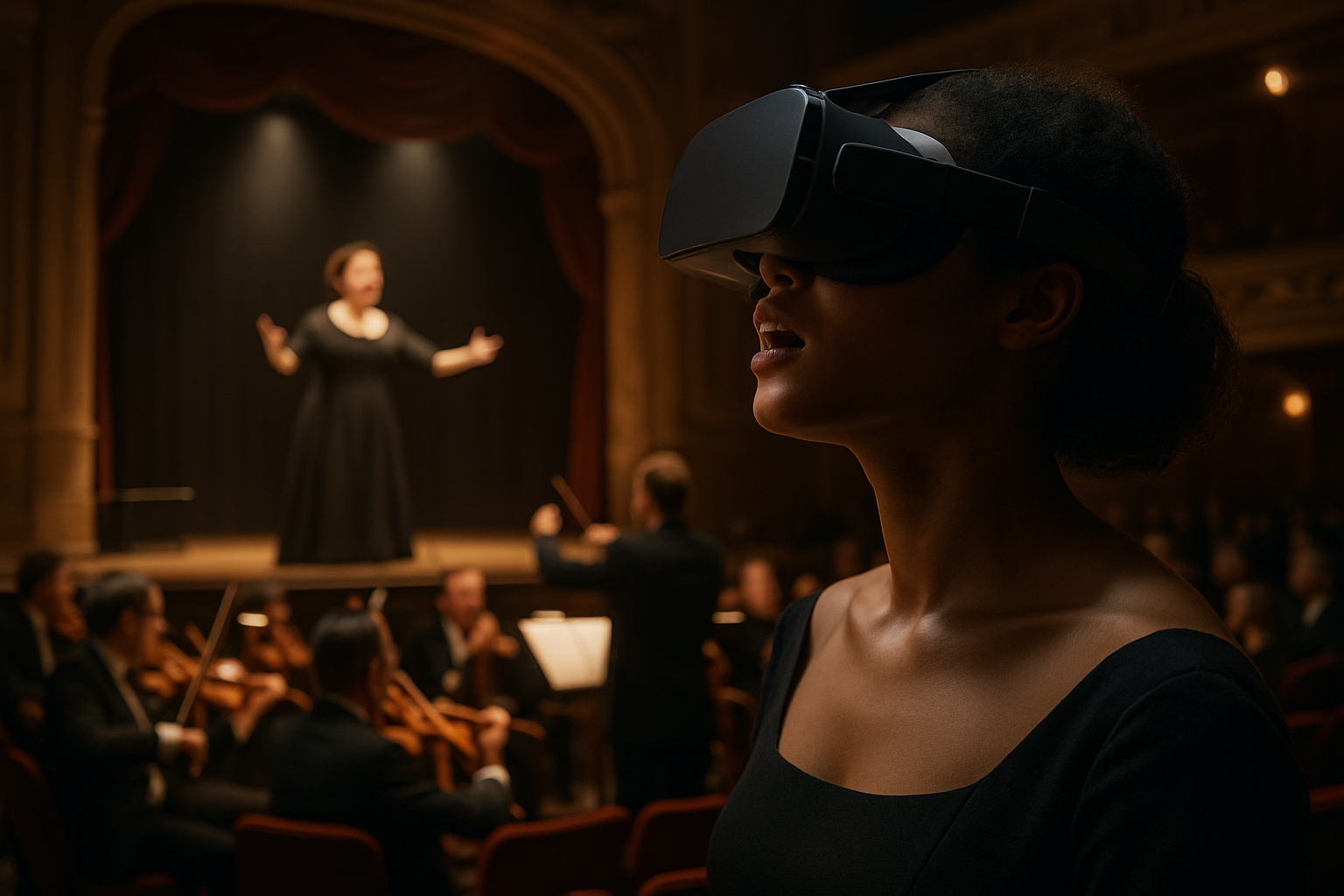Virtual Reality Opera: A New Frontier in Musical Storytelling
In the ever-evolving landscape of performing arts, a groundbreaking fusion of technology and classical music is revolutionizing the operatic experience. Virtual Reality Opera, an innovative blend of centuries-old musical tradition and cutting-edge digital immersion, is captivating audiences and pushing the boundaries of artistic expression. This emerging genre is not only reimagining how operas are performed and experienced but also attracting a new generation of tech-savvy music lovers to an art form often perceived as antiquated.

Redefining the Operatic Experience
Unlike traditional operas, VR operas allow audience members to become active participants in the narrative. Through VR headsets, viewers can explore 360-degree digital environments, interact with virtual characters, and even influence the storyline in some productions. This level of immersion breaks down the fourth wall, creating a deeply personal and emotionally resonant experience that blurs the line between observer and performer.
Technical Challenges and Innovations
Creating a VR opera presents unique challenges that require innovative solutions. Composers must consider how music will be perceived in a 3D space, often incorporating spatial audio techniques to enhance the immersive experience. Visual artists and set designers collaborate to create intricate digital worlds that respond to the music and libretto. Additionally, developers work to ensure seamless integration of live performers with pre-rendered elements, maintaining the spontaneity and energy of live performance within a digital framework.
The Rise of VR Opera Companies
As interest in VR opera grows, specialized companies dedicated to this new art form are emerging. These organizations bring together diverse teams of musicians, visual artists, programmers, and VR experts to create groundbreaking productions. Notable examples include the Virtual Opera Lab in Berlin and the Digital Opera Project in New York, both of which have garnered critical acclaim for their innovative approaches to storytelling and musical presentation.
Accessibility and Audience Expansion
One of the most significant impacts of VR opera is its potential to make the art form more accessible to diverse audiences. By removing geographical barriers, VR operas can reach viewers around the world, bringing high-quality performances to areas without access to traditional opera houses. Furthermore, the interactive and technologically advanced nature of VR opera is attracting younger audiences, helping to ensure the longevity of operatic traditions in the digital age.
Critical Reception and Artistic Debate
The advent of VR opera has sparked lively debates within the classical music community. Proponents argue that it represents a natural evolution of the art form, keeping opera relevant in the 21st century. Critics, however, express concerns about the potential loss of the live, communal experience that has long been central to opera’s appeal. As the genre continues to develop, these discussions are shaping its trajectory and challenging creators to balance innovation with respect for operatic traditions.
Educational Applications
Beyond entertainment, VR opera is finding applications in music education. Universities and conservatories are incorporating VR technology into their curricula, allowing students to study historical performances, practice conducting virtual orchestras, and even compose for VR environments. This integration of technology in music education is preparing the next generation of artists to push the boundaries of operatic expression even further.
The Future of VR Opera
As VR technology continues to advance, the possibilities for VR opera seem limitless. Future developments may include haptic feedback suits that allow viewers to feel the vibrations of music, AI-driven characters that respond in real-time to audience interactions, and even multi-user experiences that enable viewers to attend virtual performances together. These innovations promise to further blur the lines between reality and art, creating ever more immersive and emotionally impactful operatic experiences.
In conclusion, Virtual Reality Opera represents a bold new direction for an art form steeped in tradition. By embracing cutting-edge technology, opera is reinventing itself for the digital age, attracting new audiences, and exploring uncharted territories of musical storytelling. As this innovative genre continues to evolve, it challenges our perceptions of what opera can be, promising a future where the power of music and the magic of virtual worlds combine to create truly transformative artistic experiences.




